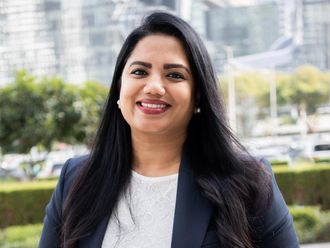Contrasting consumer expectations and needs — especially within different cultural contexts — means all brand communication strategies must, and will vary, according to the audience. But one thing is for certain — brands need communication with their consumers, and in many cases, get them to participate in the intellectual and social development of the brand. This would ensure they offer a meaningful different brand experience.
Given this mishmash of motivations, how can a brand be distinguished in a way that is productive, rather than just be a splash of attention-seeking colour in a black-and-white world?
Looking at this question, it is perhaps best to remember that as human beings we find it impossible to judge anything in isolation, and need to compare things to very close alternatives.
Let's look at a couple of brands that have demonstrated the value of co-creation. Threadless of Chicago, an online T-shirt company has an ongoing call for design submissions, with seven chosen each week for production. It offers winners a cash prize, and the initiative has generated more than half a million users as well as up to 1,000 potential designs weekly.
Tapping in
For the bigger corporates, the meaningful difference can just be a move away from traditional marketing avenues to tap into 21st century concerns.
PepsiCo, for instance, for the first time in 23 years, did not spend on Super Bowl advertising. Instead, the company diverted $20 million (Dh73.4 million) to the social media-fuelled Pepsi Refresh Project, inviting consumers to submit ideas for grants for health, environmental, social, educational, and cultural causes.
Consumers voted for their favourite ideas, and PepsiCo funded the winners in grants ranging from $5,000 to $250,000, impacting the lives of more than 1.4 million people through more than 1,000 grants. But to bring the focus back to the product, codes were printed on Pepsi drinks to be redeemed for ‘power votes'.
Brand Finance, a brand valuation consultancy, in their Brand Finance Global 500 Study for 2012 named the world's ten most valuable brands. There were no surprises with Apple ranked as number one, followed by Google, Microsoft, IBM and Walmart, and then Samsung, General Electric, Coca Cola, Vodafone and Amazon.
Dynamic
In this region, one major brand differentiation is often found in the personality of the founder whose force field can be used to spearhead entrance into a diverse range of sectors and gain a loyal following.
Shaikh Sultan Saud Al Qasimi, for example, is chairman of companies in the financial, construction and property industries. He is a dynamic entrepreneur who has enjoyed solid success over many years.
What makes the difference are Shaikh Sultan's other activities — a lecturer at the Dubai Men's College and non-resident fellow at the Dubai School of Government. He is also a co-host on the Business Tonight radio show, social media ambassador and prolific Twitterer.
He was described as being instrumental in raising awareness of the Arab Spring through his feeds and has featured in Gulf News, The New York Times, Financial Times, Open Democracy and The Guardian.
For any brand to succeed, it helps to go back to basics to look at motivation and interactive patterns.
The writer is a consultant at The Brand Union.












